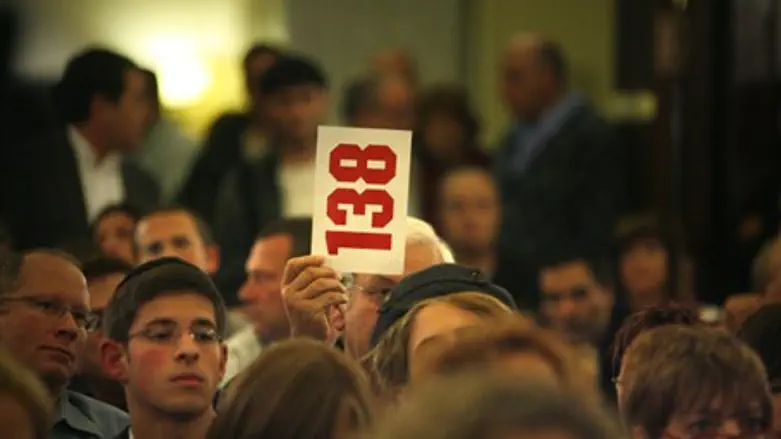
A grandson of Alfred Dreyfus, a Jewish French army captain wrongly accused of treason over a century ago, on Monday urged a private collector not to allow a letter penned by his grandfather to go under the hammer in Paris this week, AFP reports.
Written to the interior ministry in 1895, a month after Dreyfus was sentenced for treason, the letter is expected to fetch between 100,000 and 150,000 euros ($130,000 and $190,000) when it goes on auction at Sotheby's on Wednesday.
The sale, however, does not have the support of the Dreyfus family, who say the letter should be donated to a museum or a library instead.
"We urge the seller of this letter to give up this sale," Dreyfus's grandson Charles Dreyfus and historian Vincent Duclert wrote in an open letter seen by AFP.
The men said Dreyfus's historic documents should not "become objects of speculation" and called on the collector to make a "moral gesture" by donating the note to a public institution.
Dreyfus, an assimilated Jew, was found guilty in 1894 of passing secret information to the German military attaché in Paris. He was stripped of his rank, publicly degraded and deported to the penal colony of Devil's Island to serve a sentence of life imprisonment in complete isolation.
The physical evidence against Dreyfus consisted only of a slip of paper discovered in a German military trashcan on which was written a promise, in French, to deliver a valuable French artillery manual to the Germans. Experts were unable to definitively link the note to the Jewish officer.
Despite the lack of evidence, however, the Parisian press continued to defame Dreyfus, questioning his loyalty and whether he was part of an "international Jewish conspiracy."
Colonel Henry, a French military intelligence agent, testified that he had additional information definitively implicating Dreyfus. While the information involved classified military information that could not be released to the public, it nonetheless led to Dreyfus’s conviction.
The real culprit turned out to be a Major Ferdinand Walsin Esterhazy, but although the clear evidence against him was made known shortly after the trial to the military authorities, they ignored it.
In 1898 the writer Emile Zola published his famous "J'accuse" letter to the president of the day naming officials who framed Dreyfus, and the next year Dreyfus was brought back for a second trial and then officially pardoned -- though not cleared of the charges.
In his prison letter, Dreyfus proclaims his innocence, saying, "I have been sentenced for the most infamous crime a soldier can commit and I am innocent... I ask you, minister, not for grace or pity, but simply for justice."
It was the injustice of the Dreyfus trial and the helplessness of the Jews in the face of such rabid anti-Semitism that led Theodore Herzl, also an assimilated Jew, to begin the search for a Jewish national home.
